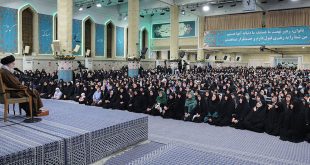This research examines motifs such as the dream, the prophets, devils and angels, Jews and Christians, the weeping of nature over the death of Husayn, Husayn’s thirst, his decapitated head, and the premonition of his death.
This research concerns the image of Husayn ibn ‘All as reflected in the maqatil al-Husayn. Husayn’s dramatic death inspired many Shiite poets, and from the second century of the Hijra (8th century AD), historians began to compose works describing this event. These works were known as maqatil (plural of maqtal). Their composition developed mainly from the 8th until the 13th century, but it continues to the present day. The period of the research spans 500 years and is based mainly on four independent maqatil selected as characteristic: a) Maqtal al-Husayn by Abu Mikhnaf (Lut ibn Yahya, d. 774/157); b) Maqtal al-Husayn by Akhtab Khawarizm (d. 1172/568); c) Muthir al-ahzan wa munir al-ashjdn by Ja’far Ibn Nama (d. 1247/645); d) al-Lahuf aid qatla al-tujufby ‘All ibn Tawus (d. 1266/664).
The term “maqtar conveys four main senses: 1) maqtal as in qatala, the act of killing; 2) the reason for the killing; 3) a central organ in the body that is injured and results in death; 4) a description of the time and place of the killing. Because Husayn is a major personality, most maqatil center on his character. He is gifted with exceptional traits, in consequence of his descent from the Prophet and his role as an Imam continuing in his path. Authors of maqatil frequently refer to these traits and stress his similarity to his father, the Imam ‘AH, and to his grandfather, the Prophet Muhammad. Husayn is represented in the maqatil as steadfast in his faith and obedient to commandment of prayer at the appointed times. He also performs supernatural acts of courage and works miracles and wonders.
The authors of the maqatil develop a connection between Husayn and Jesus, and also Husayn and John the Baptist, in order to bestow holy attributes upon Husayn. The research also examines motifs such as the dream, the prophets, devils and angels, Jews and Christians, the weeping of nature over the death of Husayn, Husayn’s thirst, his decapitated head, and the premonition of his death.
Bibliographic Information
Title: The Image of Hussain Ibn Ali in Maqatil Literature
Author: Khalid Sindawi
Published in: Quaderni di Studi Arabi,Vol. 20/21 (2002-2003), pp. 79-104
Language: English
Length: 23 pages
 Ijtihad Network Being Wise and Faithful Muslim in the Contemporary World
Ijtihad Network Being Wise and Faithful Muslim in the Contemporary World

